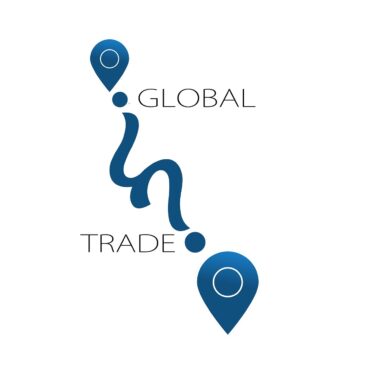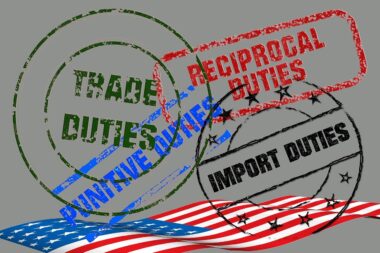Sanctions, Embargoes and Their Effect on Trade Law
Sanctions and embargoes are powerful tools used by governments to influence international trade. They can impose restrictions on exports and imports between countries, effectively altering existing trade relationships. Sanctions may be imposed for several reasons, including political disagreements, human rights violations, or national security concerns. Countries implementing these measures often aim to encourage policy changes without resorting to military action. The broad application of these tools reflects their significance in shaping trade law, typically reflected in treaties or international regulations. In the cases of sanctions, entities involved in international commerce need to navigate a complex landscape to remain compliant. Failure to adhere to imposed sanctions can lead to serious legal repercussions and financial penalties. Multinational businesses must remain vigilant in their understanding of not only their home country’s regulations but also the jurisdictions they operate in. The complexity is amplified by the variability in how different nations implement these measures. Therefore, being informed and adaptable is critical in the realm of international trade law to maintain compliance and protect business interests.
Understanding the Basics of Sanctions
Sanctions can be categorized into various types, including economic, diplomatic, and military restrictions. Economic sanctions often target specific trade sectors or industries, limiting countries’ ability to engage freely in commerce. Diplomatic sanctions may involve reducing or severing diplomatic ties, while military sanctions can restrict arms sales or military cooperation. Throughout history, sanctions have been pivotal in influencing governments to reconsider their policies or behavior. Some notable examples include sanctions against South Africa during apartheid and Iraq post-Gulf War. The global economic landscape has made it increasingly common for countries to rely on such strategies, resulting in a proliferation of diverse sanctions regimes. Notably, they can impact both exporting and importing nations, affecting a plethora of trade agreements and partnerships. Understanding how different types of sanctions operate can aid businesses in navigating the regulatory complexities of international trade. Therefore, companies must conduct comprehensive risk assessments regarding sanctions compliance, assessing potential vulnerabilities that may arise from trade relationships. Furthermore, consulting legal experts in trade law can help businesses remain compliant with sanction regimes to avoid penalties.
Embargoes, unlike sanctions, are typically broader prohibitions placed on trade with specific countries or regions altogether. They can be instituted for political reasons or in response to humanitarian crises, thereby compelling nations to align commercial relationships with moral or ethical considerations. Countries imposing embargoes often seek to isolate specific nations to communicate disapproval of their actions or policies. For instance, the long-standing embargo against Cuba has transformed the island’s economic landscape and limited its ability to trade effectively. When businesses face embargoes, they often need to investigate alternative markets and adjust their strategies accordingly. The implications of these measures can lead to significant economic disruption. International companies must carefully evaluate their existing partnerships when an embargo is implemented. Ignoring the nature of these restrictions can lead to heavy fines and reputational damage. Thus, organizations engaged in international trade must be proactive in monitoring embargoes and understanding their legal implications. This calls for keen vigilance and strategic planning to navigate a business environment shaped by embargoes while remaining compliant with trade law.
The Impact of Sanctions on Trade Relationships
Trade relationships can be severely impacted by sanctions and embargoes, leading to an environment of uncertainty and risk. Companies must develop robust risk management practices to minimize the potential adverse impacts these measures can bring. This may include due diligence on clients, suppliers, and potential partners in affected regions. Engaging legal experts in trade law can equip businesses with a strategy that minimizes the likelihood of falling victim to sanctions violations. Firms that overlook these requirements may face interruptions in supply chains and severe financial losses. Furthermore, the reputational damage caused by violations can have long-lasting effects on a company’s credibility and market position. Thus, businesses must prioritize compliance, actively monitoring changing regulations and making adjustments to their operations as necessary. The risk of penalties underscores the importance of establishing a compliance program that includes training employees and implementing processes for monitoring transactions. By preparing for potential sanctions up front, businesses can safeguard themselves and their trade relationships in the often volatile arena of international commerce.
The world of trade law is notably influenced by evolving geopolitical dynamics, making it crucial for businesses to stay informed. International organizations often play a pivotal role in defining and enforcing sanctions and embargoes. Institutions such as the United Nations (UN) and European Union (EU) frequently engage in formulating policies that dictate the terms of engagement between nations. Compliance with international norms not only ensures lawful trading practices but also enhances corporate reputation. Furthermore, maintaining transparency in operations can contribute positively to public perception. Engaging with local legal counsel familiar with international trade laws can provide businesses with valuable insights into regulatory requirements related to sanctions. Additionally, collaboration with trade associations can foster a deeper understanding of ongoing developments in trade law. It is also essential for firms to scrutinize any changes in laws both domestically and globally. Regular updates on changing sanctions can prevent companies from inadvertently violating trade laws, thus avoiding unnecessary risks. Thus, diligent monitoring of international relations is necessary for sustaining successful trade practices in an ever-shifting global landscape.
Consequences of Non-Compliance
Violations of sanctions and embargoes can result in severe penalties for businesses, ranging from hefty fines to criminal charges. Regulatory bodies impose such punitive measures to underscore the importance of compliance in international trade. Companies that find themselves on the wrong side of these regulations may lose their ability to operate in specific markets or face broader reputational repercussions. This demonstrates the stiff consequences businesses may encounter due to non-compliance. Moreover, businesses in the international trade sector may experience increased scrutiny from government agencies, significantly affecting their operations. It becomes imperative for organizations to cultivate a culture of compliance throughout their operational processes. Specifically, leadership must prioritize training and communication regarding legal compliance. Ensuring that all employees understand the implications of sanctions helps to foster awareness, thus minimizing risks. Additionally, establishing internal protocols for reporting potential violations can provide an additional layer of protection. The integration of legal compliance training into standard employee education ensures that companies are prepared for the complexities of operating in an international trade environment, thus enhancing overall stability and security.
Collaboration with experienced legal professionals specializing in trade law is essential for navigating the serious complexities of sanctions and embargoes. Such professionals bring significant expertise, allowing businesses to better understand regulatory changes and their impacts on trade operations. By engaging trade law experts, organizations can position themselves to react promptly to sanctions updates, ensuring their operations remain compliant. Moreover, leveraging technology solutions can facilitate monitoring for any changes in sanctions or compliance requirements. Automation tools can help streamline processes, allowing companies to focus on their core operations. Employing sophisticated analytics can also provide insights into trade risks associated with specific regions. Continuous professional development for staff related to trade compliance can fortify a company’s defenses against sanctions violations. As the international trading environment continues to evolve, businesses must remain adaptable, embracing new solutions and insights. Moreover, cross-functional teams should be formed to handle compliance efforts successfully. This collaborative approach promotes robust communication and ensures comprehensive assessments of trade regulations enforced by governments and international organizations, ultimately safeguarding international trading practices.
Ultimately, the interplay between sanctions, embargoes, and trade law is complex. Companies engaged in international commerce must remain proactive in adapting to this landscape. It is imperative for all levels of the organization to recognize the critical nature of conforming to trade laws and the significant legal ramifications of failing to do so. As global trade becomes ever more interconnected, businesses that fail to adequately manage their compliance risks may jeopardize their operations and reputation. The global community calls for increased accountability in international trade; thus, understanding and adhering to sanctions and embargoes is not optional but essential. Successful navigation of this landscape requires not only awareness of current sanctions but also sophisticated strategies to mitigate risks associated with compliance violations. To thrive in international trade, organizations must prioritize an ethical approach to conducting business while steadfastly adhering to regulatory mandates. In conclusion, developing comprehensive compliance plans and engaging with legal experts can provide a robust framework for addressing any challenges posed by sanctions and embargoes. Emphasizing these principles can better prepare businesses to adapt to future changes and secure their place in the global market.





